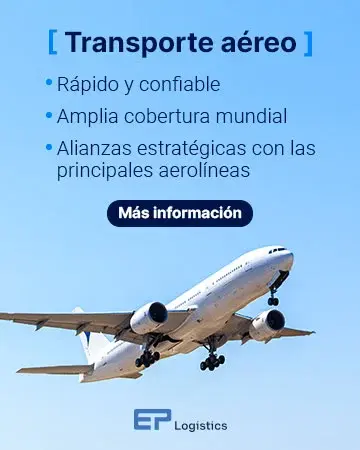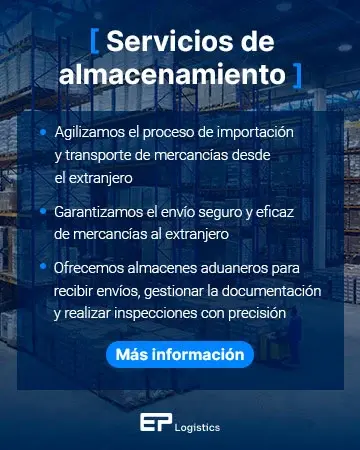If you are wondering how artificial intelligence is transforming modern logistics operations, just look at the processes that many logistics companies are adopting: reducing costs through optimizing routes, forecasting market and demand, and optimizing overall operations.
Let’s explore what these advantages are and how they benefit industries, especially when it comes to the logistics and transportation sectors.
The evolution of AI in logistics
Not long ago, AI in logistics was a fringe concept, confined to research labs and ambitious pilot projects. Experience, historical patterns, and a certain amount of manual effort largely drove logistics.
Fast forward to today, and AI has evolved from an experimental technology into an indispensable business tool. What began as simple automation has transformed into a sophisticated ecosystem powered by machine learning algorithms, predictive analytics, and cognitive computing.
This evolution, from a support tool to the current situation where logistics solutions for modern supply chains have become the central nervous system of global trade, enabling the smooth and efficient movement of goods. We are beginning to take it for granted.

Key AI technologies revolutionizing logistics
Machine Learning and Predictive Analytics
At the heart of the AI revolution are machine learning algorithms. These systems consume massive amounts of historical data, from sales figures and seasonal trends to weather reports and economic indicators, to find patterns invisible to the human eye. This is the engine of predictive analytics.
For instance, by analyzing this data, ML models can perform incredibly accurate AI driving-demand forecasting, allowing companies to stock exactly what they need, where they need it, and when.
This same principle applies to predictive maintenance in transportation, where AI analyzes sensor data from trucks and ships to predict mechanical failures before they occur, preventing costly downtime and delays.
Route optimization and transportation management
AI systems don’t just look at traffic; they process a dizzying array of variables in real time: weather conditions, fuel prices, port congestion, driver hours, and even the potential for theft.
This logistics automation in transportation management calculates the most efficient path, not just the shortest. The result? Reduced fuel consumption, fast delivery times, and enhanced customer satisfaction.
Warehouse automation and robotics
Inside the modern warehouse, Autonomous Mobile Robots (AMRs) shuttle goods from shelves to packing stations, while computer vision systems scan and sort packages with superhuman speed and accuracy.
These robots are connected to a central AI brain that continuously optimizes their paths and tasks, maximizing storage density and slashing the time it takes to fulfill.
This isn’t just about replacing manual labor; it’s about creating a synergistic environment where humans and robots work together to achieve unprecedented levels of productivity.
Natural Language Processing for customer service
The logistics journey is filled with questions: “Where’s my order?”, “What are the customs requirements?”, “Has my shipment cleared the port?” Natural Language Processing (NLP), a branch of AI that understands human language, is deployed in chatbots and virtual assistants to handle these queries instantly and around the clock.
This improves the customer experience and frees up human agents to tackle more complex, high-value problems, making the entire supply chain management process more responsive and efficient.

Key AI technologies revolutionizing logistics
Machine Learning and Predictive Analytics
At the heart of the AI revolution are machine learning algorithms. These systems consume massive amounts of historical data, from sales figures and seasonal trends to weather reports and economic indicators, to find patterns invisible to the human eye. This is the engine of predictive analytics.
For instance, by analyzing this data, ML models can perform incredibly accurate AI driving-demand forecasting, allowing companies to stock exactly what they need, where they need it, and when.
This same principle applies to predictive maintenance in transportation, where AI analyzes sensor data from trucks and ships to predict mechanical failures before they occur, preventing costly downtime and delays.
Route optimization and transportation management
AI systems don’t just look at traffic; they process a dizzying array of variables in real time: weather conditions, fuel prices, port congestion, driver hours, and even the potential for theft.
This logistics automation in transportation management calculates the most efficient path, not just the shortest. The result? Reduced fuel consumption, fast delivery times, and enhanced customer satisfaction.
Warehouse automation and robotics
Inside the modern warehouse, Autonomous Mobile Robots (AMRs) shuttle goods from shelves to packing stations, while computer vision systems scan and sort packages with superhuman speed and accuracy.
These robots are connected to a central AI brain that continuously optimizes their paths and tasks, maximizing storage density and slashing the time it takes to fulfill.
This isn’t just about replacing manual labor; it’s about creating a synergistic environment where humans and robots work together to achieve unprecedented levels of productivity.
Natural Language Processing for customer service
The logistics journey is filled with questions: “Where’s my order?”, “What are the customs requirements?”, “Has my shipment cleared the port?” Natural Language Processing (NLP), a branch of AI that understands human language, is deployed in chatbots and virtual assistants to handle these queries instantly and around the clock.
This improves the customer experience and frees up human agents to tackle more complex, high-value problems, making the entire supply chain management process more responsive and efficient.
Measurable benefits of AI in logistics operations
The advantages brought by AI in logistics are such that every day, more and more companies are implementing its technologies along the supply chain visibility solutions.
In fact, recent surveys show that around 2/3 of decision-makers in transportation and logistics recognize the importance of AI 67% plan to implement it in the next 5 years and 19% are already on track.
Besides the common case uses, which already show us some of the great advantages of AI in business operations, AI in logistics also helps with the following:
Cost savings of up to 30%
By automating repetitive tasks through AI sensors and systems, route planning and inventory level optimization, among other operations, are enhanced, reducing the costs of fixing mistakes as well as better utilizing the company’s resources. This is one of the most attractive benefits of AI in logistics.
According to the Georgetown Journal of International Affairs, surveys show that businesses with AI-enabled supply chain management reduced logistics costs by 15%, improved inventory levels by 35%, and enhanced service levels by 65%.
Improved speed and accuracy
Using artificial intelligence in logistics also prevents manual errors since more accurate data and real-time insights, and updates are available for better decision-making significantly enhancing speed and accuracy.
As a leader in the field, at EP Logistics we use AI to ensure faster, more accurate delivery of your products.
Enhanced customer satisfaction
Lastly, AI powers real-time logistics tracking technologies and enables predictive ETAs (Estimated Time of Arrival), which customers love as it keeps them informed of where their order is, therefore increasing customer satisfaction.
As a top 3PL, we offer e-commerce fulfillment services that use AI to ensure reliable, prompt deliveries at all times to keep your customers happy and looking to return. Learn more about e-commerce fulfillment.

Real-world applications of AI in logistics
AI-powered demand forecasting
Major retailers like Amazon and Walmart use AI-driven demand forecasting to stock their distribution centers. By analyzing petabytes of data, their AI can predict a spike in demand for specific products in a specific region, ensuring shelves are stocked and e-commerce orders are fulfilled without delay, especially during peak seasons.
Intelligent route planning and optimization
Global shipping companies like Maersk use AI to optimize their massive container vessel routes across oceans. This allows them to predict potential delay points like weather and sea conditions and plan for alternative routes accordingly, saving millions in fuel and ensuring on-time deliveries.
Automated warehouse management
Companies like DHL and FedEx have heavily invested in warehouse automation; their fulfillment centers are bustling with AI-driven robots that autonomously navigate the warehouse floor, retrieving items and bringing them to human packers, increasing order processing speed by several multiples.
Overcoming challenges in AI implementation
Data Quality and integration issues
For AI logistics technology to properly work, it needs to be able to extract consistent, high-quality data. Some companies struggle with this as they don’t have data standardization.
Another challenge is how to integrate the new AI technologies with the existing logistics systems. Since there are companies with legacy infrastructure, strategic solutions like cloud-based ones will need to be implemented.
Cost considerations and ROI
The initial investment in infrastructure, software, and expertise can be significant. Companies mostly view this as a strategic investment and clearly understand the expected return, whether through cost savings, revenue growth, or enhanced customer retention.
This means the business starts with a gradual implementation of AI, first targeting specific tasks such as demand forecasting and dynamic route planning before expanding to bigger-scale smart logistics.
Workforce adaptation and training
The introduction of AI can cause anxiety among employees; a successful strategy involves transparent communication and upskilling programs. The goal is to transition the workforce from performing repetitive tasks to managing, maintaining, and interpreting the AI systems, which the ultimately more valuable and engaging roles.
How EP Logistics leverages AI for cross-border excellence
At EP Logistics, we’re actively working toward a smarter, more connected logistics network powered by artificial intelligence. Understanding the complexities of international trade between the U.S. and Mexico, we’re integrating AI across our operations to enhance efficiency, visibility, and decision-making at every stage.
- Customs processing. We’re developing predictive analytics that identify potential documentation issues or customs holds before they occur helping reduce clearance times and improve consistency across shipments.
- Inventory management. Through machine learning, we’re refining our ability to position inventory dynamically within our cross-border warehouses, ensuring products are closer to end customers and minimizing lead times.
- Transportation optimization. Our route optimization tools continuously evolve to account for border wait times, time-of-day regulations, and road conditions, supporting faster, more efficient, and cost-effective deliveries.
The future of AI in logistics
The AI journey in logistics is just beginning; emerging trends like digital twins in logistics will become more prevalent, allowing for full-scale simulation and stress testing of supply chains. We will see more autonomous trucks and drones for last-mile delivery.
Furthermore, AI will evolve from being a tool for optimization to a platform for strategic automated decision-making in the supply chain, making complex strategic choices with minimal human intervention.
To prepare, companies must foster a culture of data-driven decision-making and continuous technological learning.
Embracing AI for competitive advantage
From machine learning and predictive analytics to AI warehouse robotics, how artificial intelligence in supply chain is transforming logistics is a story of unprecedented efficiency, resilience, and intelligence.
The question for businesses is no longer if they should adopt AI, but how quickly they can integrate it to gain a crucial competitive advantage. The future of logistics is intelligent, adaptive, and data-driven.
At EP Logistics, we offer different services that cover all your logistics needs, including warehouse solutions, road freight, transportation technology, Air Freight, and international Customs Brokerage to help with your international Cross-Border Logistics.
If you are looking to stand out from the competition and upgrade to AI-driven innovation in transport, feel free to reach out to learn more about our customizable solutions to suit your specific business needs.




